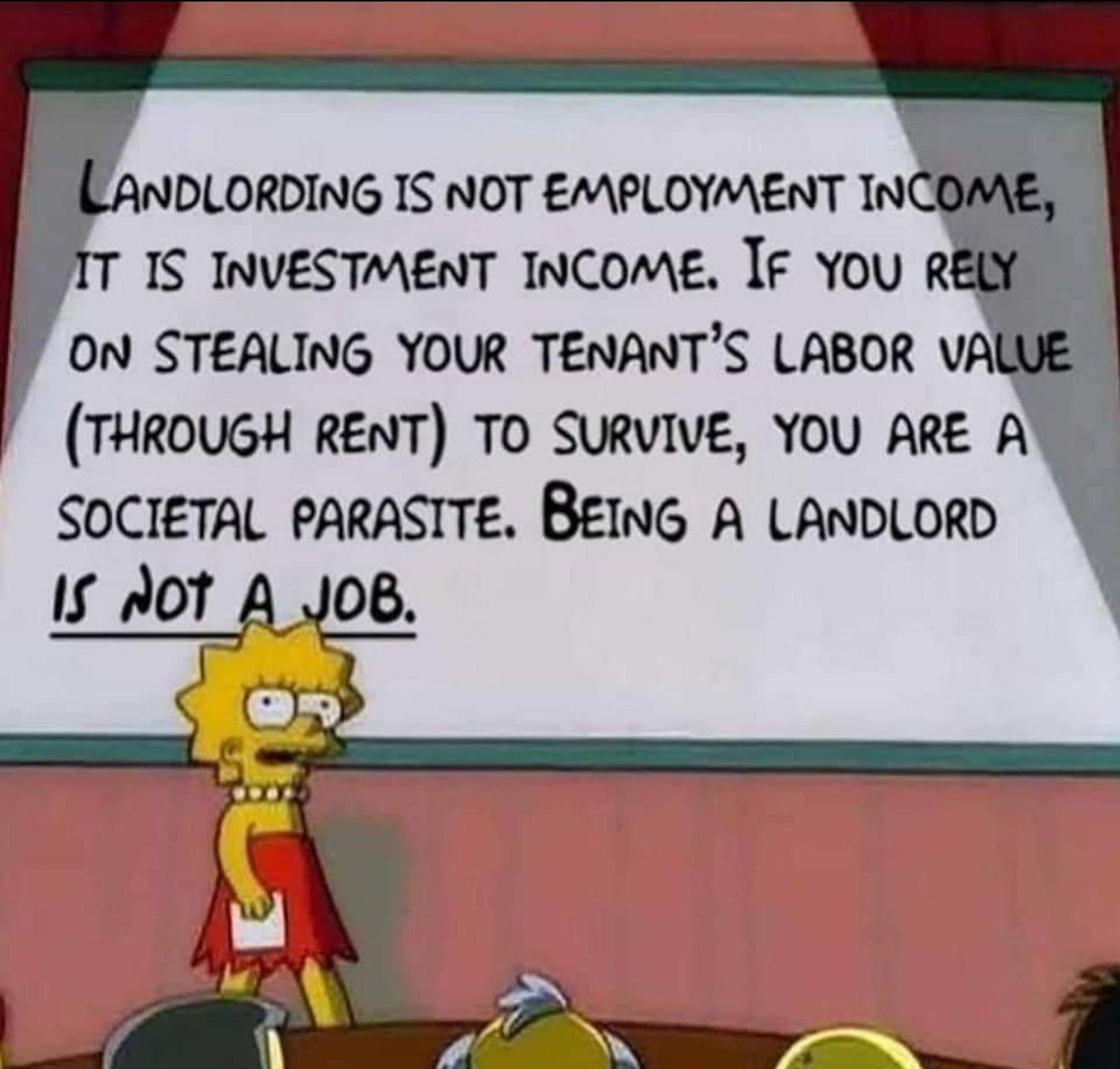this post was submitted on 22 Apr 2024
1033 points (81.3% liked)
A Boring Dystopia
12665 readers
847 users here now
Pictures, Videos, Articles showing just how boring it is to live in a dystopic society, or with signs of a dystopic society.
Rules (Subject to Change)
--Be a Decent Human Being
--Posting news articles: include the source name and exact title from article in your post title
--If a picture is just a screenshot of an article, link the article
--If a video's content isn't clear from title, write a short summary so people know what it's about.
--Posts must have something to do with the topic
--Zero tolerance for Racism/Sexism/Ableism/etc.
--No NSFW content
--Abide by the rules of lemmy.world
founded 2 years ago
MODERATORS
you are viewing a single comment's thread
view the rest of the comments
view the rest of the comments

They're a business, so they'll charge what the market will bear. Forcing them to take less profits will lead to less pressure to produce more housing, which hurts the supply problem.
Look at places like San Francisco that have rent controls, zoning laws prevent new housing construction, and limits on profits discourage investors from pushing to change those zoning laws. They also encourage people to keep their housing, since leaving then vacant may be preferable to getting a new lease if they need to leave the area for a while.
The proper solution to greed is to increase competition. For the housing market, that means zoning changes to promote higher density zoning paired with transit, and restrict new lower density housing. That way more people can actually use transit routes, which means less need for roads, which means more room for housing in cities and less tax dollars spent on maintenance.
No dude high rent is bad for almost everyone. People cant buy houses because most of them are owned by big corporations that squeeze every cent out of people.
I agree, I'm just saying attacking landlords is attacking symptoms, not the root cause. The root cause is lack of supply for affordable homes, and that's a more complex issue largely stemming from COVID-related supply disruptions.